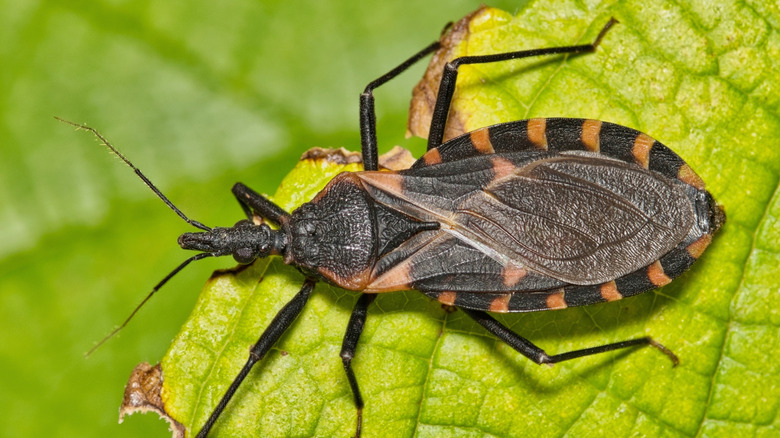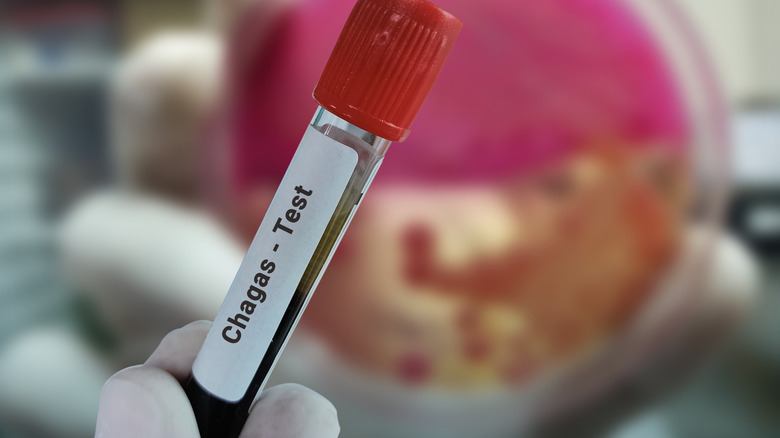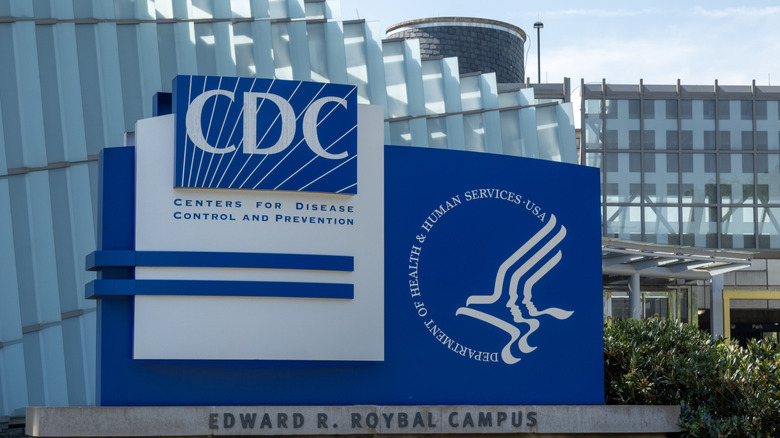The CDC Has An Unsettling Warning About 'Kissing Bug' Disease
Although the "kissing bug" may have a cute name, it's actually considered among the world's deadliest animals. That's because it's the most common vector for Chagas disease, an illness caused by the Trypanosoma cruzi parasite. Kissing bugs get their name from their knack for biting faces, but the real danger is in their feces. Infection occurs when kissing bug feces containing the parasite enter the body, such as from droppings in the mouth while a person is sleeping. Yet, while Chagas disease has been considered a tropical disease, the Centers for Disease Control and Prevention now reports that it is also more present in the United States than previously thought, so much so that it's now considered endemic.
Although Chagas disease has long been considered endemic within other American countries, including Mexico, the new report points to an increase in human infections in at least eight different U.S. states — Arizona, Arkansas, California, Louisiana, Mississippi, Missouri, Tennessee, and Texas. Out of those states, instances of Chagas disease are most prevalent in Texas, especially in the areas that border Mexico along the Rio Grande.
Whether the "kissing bug" disease is increasing its range or simply garnering more widespread recognition is unknown. Yet, it's clear that the disease is tied to the range of the kissing bug, the most common vector for its spread. The parasite can infect both domestic cats and dogs as well, when they eat the insect. The CDC warning is unsettling, and it opens a wider debate about the role of epidemiology. If the "kissing bug" disease is indeed spreading, educating the public about the disease is critical.
The biology behind the 'kissing bug' disease
"Kissing bugs" are taxonomically referred to as triatomine insects within the Reduviidae family. Their predatory instincts place them in the same category as assassin bugs, which often prey on other insects such as the boxelder bug. But unlike other assassin bugs, kissing bugs consume blood. Kissing bugs often suck blood from humans at night when they're sleeping. The bite isn't painful, but it can be itchy.
It's estimated that around half of all kissing bugs are infected with the T. cruzi parasite, the culprit behind Chagas disease. Kissing bug feces can enter food, water, and other consumable sources that can eventually enter the human body. Estimates range from 300,000 to 1 million cases of infections in the United States alone. It's these numbers that have caused the CDC to upgrade the status of Chagas disease to endemic.
To the frustration of epidemiologists, Chagas disease is hard to track. Although the T. cruzi parasite often causes symptoms of fever, fatigue, body aches and pains, and stomach problems, many people often don't even notice symptoms. However, one out of three people eventually develop a chronic form of the disease, which sometimes takes years to manifest. This phase can be seriously damaging to heart function and other systems, so it's a serious condition that requires medical attention.
The CDC report is not cause for alarm
Even though the CDC has updated the status of Chagas disease to endemic in the U.S., it's important to address the fact that the disease — and the bug that spreads it — has existed in the United States for a very long time. In fact, the oldest evidence of Chagas infections comes from mummies found in Texas that date back 1,000 years.
Thus, it still remains a debate whether the increase in cases indicates that the parasitic illness is spreading its range and prevalence or whether improved reporting and diagnosis are the only reasons for the disease's upgrade to endemic status. The kissing bug is certainly not invasive to the U.S., unlike the many destructive invasive species wreaking havoc in California.
Instead, the status change is ultimately intended to raise greater awareness of the disease. According to the CDC report, labeling Chagas disease specifically as hypoendemic (i.e., affecting a small portion of the population) is actually a good thing, as it will increase "surveillance, research, and public health responses." If anything, the warning should be empowering, not unsettling. After all, knowledge is power.


